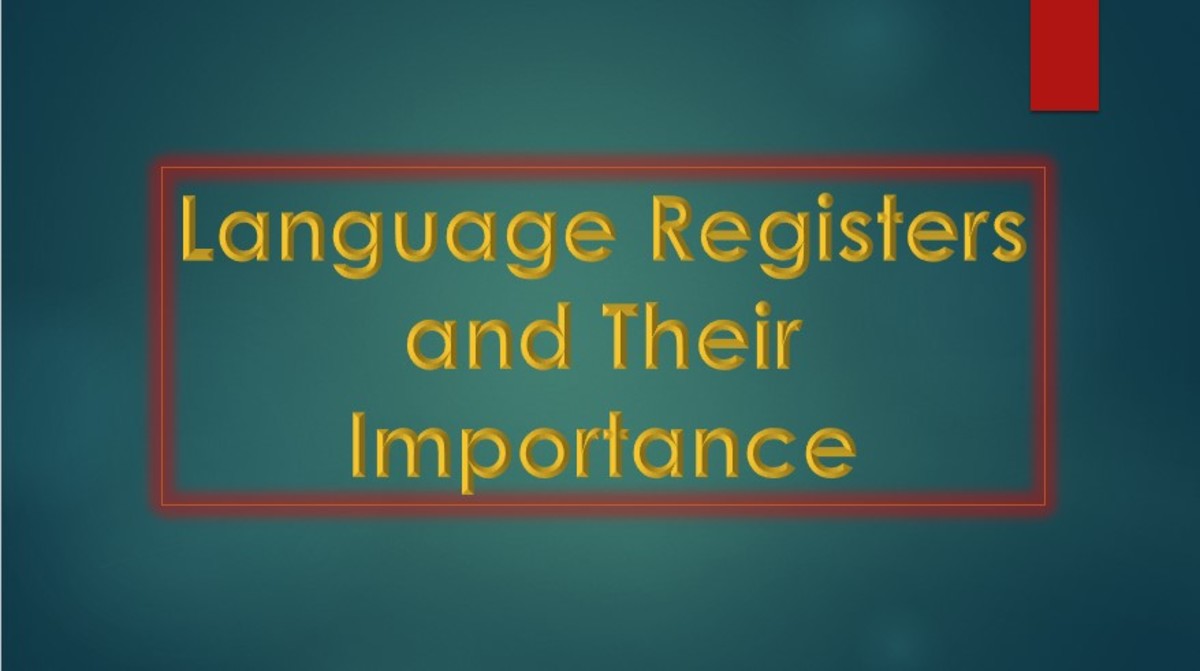Communication Makes People Popular
The function of communication
Communication controls our ability to collaborate with others. It is an exchange of information intended to foster understanding. As laughing is to humor, the most important part of communication is understanding others. Bridging capital is the network of acquaintances and outlying friends that we attain though our participation in groups or 'communities'. Groups with diverse membership are more likely to expose people to new information and resources, helping the members gain status in other communities. These groups extend our social networks. The grape vine is a very substantial and useful tool. Through this we learn of reputations, extending or retracting, many forms of trust. We learn what, who, and how to trust in our communities. Trust develops and personal expenditures accompanying the transfer of information decrease. This allows us to increase the action taken with the information. The people that have high language proficiency are better at trading information, and by effect resources. The ability to comprehend others, and then spread these learned ideas; is a key component in our social value as a member in any community.
Why would it be more important to understand others, then to be understood by others?
How communication binds us together
Adult bonding in humans is generated by shared experience though physical, visual, and vocal communication. Effective communication allows people to share experiences more intimately, though deeper comprehension of one another's experience of the event. Shared experiences can also be generated by equating another's past experiences with your own. This is known as the empathetic response. The degree of empathy that exists between two people can be used to evaluate the strength of their relationship. Communication that is clear, concise, and with deep understanding; facilitates the creation of these bonds.
Make it meaningful
Meaningful encounters are the ones that will stick with us. They appeal to at least one and hopefully all 3 of our brains higher processing faculties: executive, memory, and emotion processes.
A meaningful experience can be entirely frontal cortex. This is a conceptual idea that sticks with us because of its deep impact on our reasoning. An example would be the logical fallacy of the false positive. The slot machines in casinos capitalize on this more than politicians. A false positive is created when we see a reoccurring event that leads to another recurring event. This subverts our cause and effect reasoning. Slot machines do it by delivering a diverse group of stimuli (the bells, whistles, lights, pictures), and then occasionally deliver a reward. People are naturally inclined to create a cause for the reward; by attributing it to a certain sequence of stimuli. When their false pattern is confirmed, they begin to try it more confidently. This eventually becomes a ritual, or superstition, that sometimes works. We bet more when we see a group of patterns. This idea is profound enough to create a meaningful experience in the rational part of the mind, creating a meaningful experience.
Sharing experience
When people compare their personal experiences it is termed “relating to each other”. When people are sharing stories they are not necessarily crazy. Even in those group therapy circles, a sense of community develops as the participants begin to bond. This also happens when people share things that are not memories such as dilusions that they experience. This often happens in cults. Our experiences are influenced greatly by how we interpreted previous expeiriences. False information and faulty processing of information can be passed from individual to the next. Creating shared dilusions such as the common tingling sensation due to remembering an emotionally significant event as the hand of God becuase it also happens in cult rituals. Sharing experiences with one another truthfully is not a cure, evidence is needed as a somewhat reliable way to correct such errors.
Buddies
Male humans tend to bond more strongly by doing things together. In fact “talking too much” during a fishing trip may be termed “acting like a chick”. In this case “talking too much” is referring to the description of emotionally charged episodes, which the talker may or may-not have been an active participant. Increased communication can be achieved by stating the most in the fewest words, like at a sporting event. This is called being concise. The trick to being concise is to eradicate the frivolous parts of a conversation. If I've never meet, nor intend to meet, Rebecca or Janet, then Janet going out with Rebecca's ex-boyfriend has no relevance. Idle conversation should have some meaning, B.S.ing has meaning. It communicates an interpretation of the world around us that is constantly in flux. This strengthens the shared experience as we experience it.
Getting all emotional
A shared emotion is called empathy. Never underestimate the power of empathy. I'm constantly chided for my inability to cry. The you cried, I cried, we cried exchange is something my wife craves desperately. Joy is an emotion to and we can share that instead, but it's not the same apparently. Empathy is not a human phenomenon. It has been demonstrated in many animals including mice. Experiments have been conducted to evaluate that extent of the most basic empathetic responses. “Suggest that prior shock selectively sensitizes emotional responding to the similar experiences of others, but not to separate forms of environmental stimuli.“ Sanders. This body of research suggests that a similar experience will sensitize a person to an emotional response. Perhaps it is my lack of experience crying that disables me from 'sharing a cry'.
Convergence
The most meaningful encounters are when all 3 of these are combined. This isn't as rare as most people think and happens regularly when people collaborate. Working with others requires that you communicate with each other. First people begin to talk about their past experiences, and the knowledge they gained from it. This leads to the exchange of ideas. People then share the experience of working together. If they find the experience to be profitable in some way, material or immaterial, they are much more likely to continue the relationship. Emotions intertwine themselves into all human interactions and are a good way to evaluate the immaterial gains. Those that can better comprehend another, and then in turn make themselves understood; will strongly invoke all three. Collaboration is the generally known to be the most common cause of repeat encounters with other people.
Quality Control
Increasing the quality and content of communication will expand your associative group. People are much more likely to listen to what you say if it relates to them, is stated clearly, and is concise. Collaboration and the sharing of ideas is the basis for most communities. Almost all communities are intended to create meaningful encounters.(If there is no meaning what’s the purpose?)
The weather ritual
Initially people engage in small talk, expressing very vague and general experiences, like the weather. They are searching for something in common so that they can engage the other in deeper conversation. Soon they begin trying to relate their past experiences, generating a shared experience, like the winter of 2006. From here the conversation will diversify any number of ways as they try to share an idea: the gleeful anticipation of global warming so their hands won’t freeze. People with increased communication abilities can quickly develop a conversation to the point of sharing ideas and emotions.

If it was the half of it!
Rhetoric is the use of specific language for a specific audience. You should not tell the sarcastic joke from the party last night to the cop that pulls you over in the morning. You can relate an experience in working with the public. Rhetoric is the science of being able to apply yourself to others. Spark a meaningful experience quickly and then develop it, through what you say and how you say it. The aim is empathy, to forge an emotional connection, through ideas and similar experiences; with the purpose of a shared emotion.
Sarcastic party joke not told to cop
3 people are a threesome, 2 people are a twosome, you look so handsome.

HELP
Asking for and giving help engages people immediately in a shared experience. People who are better communicators can understand what kind of help a person is looking for, and also ask for very specific help. This then is turned into a more meaningful event by the exchange of words. People feel useful and competent when they employ their knowledge and experience.
Case Closed
Social status is an individual’s desirability to be affiliated with. People associate themselves with people they have bonded with, with people that have knowledge/resources, and people with high social status. A greater ability to communicate gives people the ability to bind more strongly with more people, cooperate with others gaining more resources, and achieve higher social status by cumulative effect. Rhetoric is the science of fostering a shared emotion. The immaterial value of meaningfulness that an encounter has, is equivalent to the shared emotional response. Language is to meaning; as Cellar Door is to sound.








